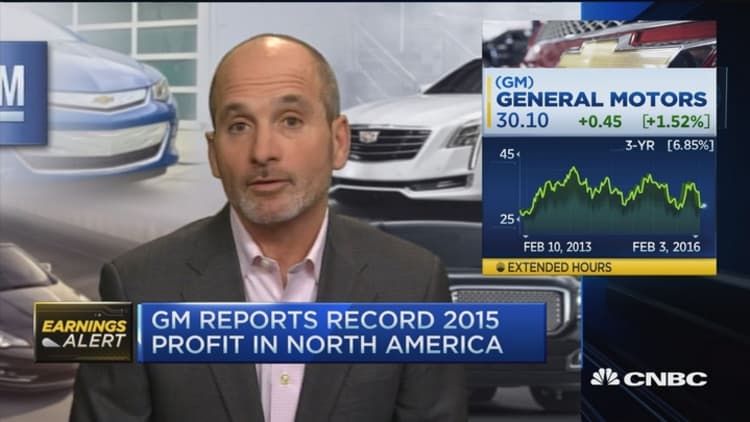
The percentage of auto loans to buyers with the poorest credit ratings is growing faster than the rest of the auto finance market, according to a new report.
Experian Automotive's analysis of open auto loans in the fourth quarter raises more questions about the health of the American consumer.
In addition to the growth in subprime and deep subprime auto loans, the report also shows a slight decrease in auto loans one month past due but an increase in auto loans at least 60 days' delinquent. In the fourth quarter, 0.77 percent of all auto loans were at least two months past due.
"The numbers are obviously worth keeping an eye on, but lenders are managing the risk," said Melinda Zabritski, Experian's senior director of automotive finance.
The average amount owed on the loans 60 days past due was $737 to $3,042, depending on the credit score.
As auto sales climbed to a record high last year, banks, credit unions and the finance divisions of automakers wrote so many loans that the total amount borrowed for new cars and trucks hit almost $1 trillion in the fourth quarter.
Experian says 20.8 percent of open auto loans are now held by those with subprime and deep subprime credit ratings. That's a slight increase from the fourth quarter of 2014.
Buyers with credit scores of 500 to 600 are considered subprime and those with scores ranging from 300 to 500 are considered deep subprime.
While the rise in delinquencies or loans to those with lower credit scores may alarm some watching the auto market, Zabritski is not yet worried.
"We're not seeing anything that would be a red flag," she said.
Historically, auto delinquencies and repossessions climb when unemployment rises and the economy slows. The latest economic data may show the U.S. economy slowing down, but the unemployment rate dropped below 5 percent in January, the lowest level in years.

Will the rise in subprime loans force lenders to tighten credit availability for those looking to buy a new car or truck? Maybe not, says Zabritski.
"Subprime has always been a part of the auto finance market and that's not going to change," she said. "We still have a lower percentage of subprime loans than we had before the recession."
Questions? Comments? BehindTheWheel@cnbc.com.





